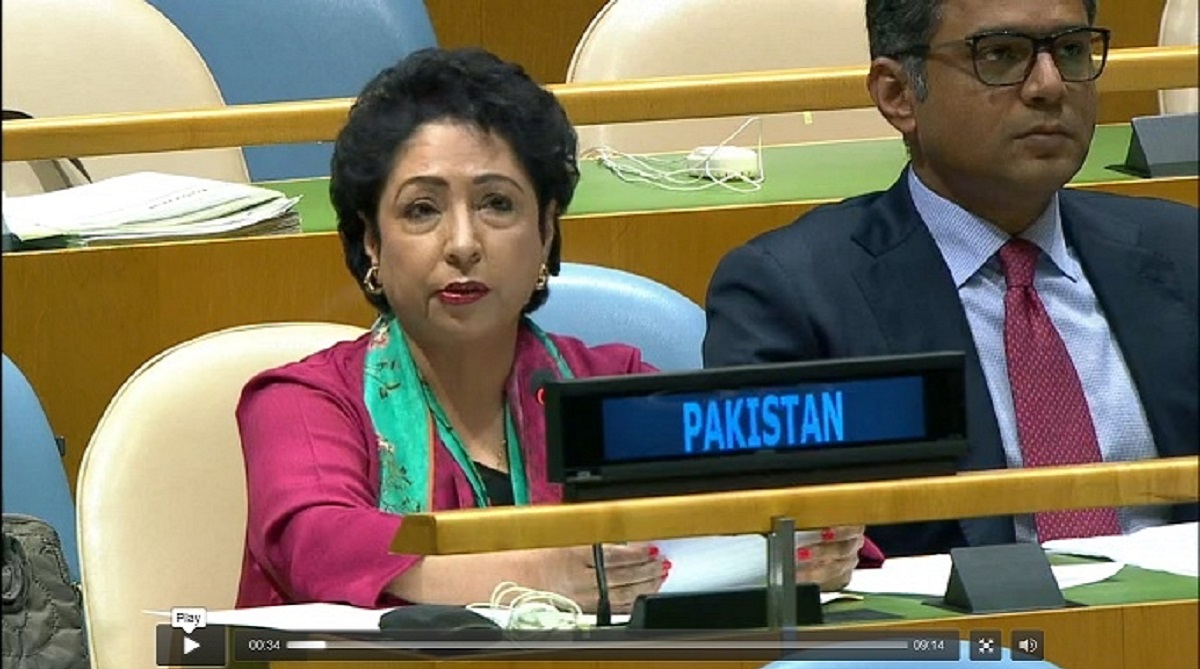Pakistan has launched a strong attack on India’s quest for a permanent seat on the UN Security Council blaming it as the “primary stumbling block” for reforms.
Intervening in the discussions on Council reforms on Wednesday, Pakistan’s Permanent Representative Maleeha Lodhi did not mention India by name but she criticized its suggestion to look for alternatives if the current negotiating process doesn’t make progress.
Advertisement
India’s Permanent Representative Syed Akbaruddin had said on Tuesday, “If despite our best efforts, credible progress evades us once again, then we should not shy away from reviewing how we engage on this very important issue.”
“We need to look at creative pathways to forge ahead,” he added at the meeting of the Intergovernmental Negotiations (IGN) on Council reforms.
Lodhi said, “We heard an assertion that given the perceived lack of progress in the IGN, it may be time to review the entire process with a view to pronounce on its fate.
“Those calling for a review of the IGN process, should instead review their own positions because the quest by some to gain permanent seats for themselves remains the primary stumbling block and this was clearly evident from our discussions, yesterday,” she said.
India, Brazil, Germany, and Japan are pursuing permanent seats for themselves, while African and Arab nations want representation in the ranks of permanent members.
After having already spoken at the IGN meeting on Tuesday, Lodhi took the floor again to make pointed attacks on India – as well as others sharing New Delhi’s positions on the reforms and the process for it.
She said, “As for the point raised by one distinguished colleague, none of the examples and landmark documents he cited involved an amendment of the UN Charter. That’s the fundamental difference between this IGN and other processes.”
“Any procedural manoeuvers are not only self-inhibiting, they are also counter-productive,” she added.
An alternative to the negotiations that has been deadlocked for over a decade would be to go directly for an amendment to the UN Charters to add more permanent and non-permanent members to the Council, which is supported by a majority of the UN members.
Even if the negotiations do succeed, the Charter would have to be amended to incorporate the reforms.
Amendments will require a two-thirds majority of the General Assembly – 129 out of 193 members – and the vote of all the permanent members.
The strategy of going directly for amendment would bank on getting the agreement of two-thirds of the members outside of the IGN process for amendments that would bundle two permanent seats for African nations with the other changes and defying the permanent members to veto them because it would be seen as biased against Africa, a historic victim of colonialism.
This strategy has been discussed informally among diplomats, but has not been formally proposed by anyone.
On Tuesday, Akbaruddin had drawn attention to the exclusion of African nations from the ranks of the permanent members and called for correcting the “long-standing injustice”.
“We vociferously support the call for the reflection of the Common African Position in the negotiations,” he said.
The 55 African nations, which make up the single largest group in the UN, have demanded adding two permanent seats and two non-permanent seats to the two they now have in the Council.
Lodhi also reiterated her opposition to having text-based negotiations. Blocking the adoption of a negotiating text has been the main tool for preventing the negotiations from making progress.
“Despite persistent differences on fundamental aspects of reform, the stubborn insistence on text-based negotiations is another attempt to artificially paper-over differences,” she said.
Pakistan and the other 12 members of a group led by Italy called United for Consensus have opposed the adoption of a text on which to base the negotiations claiming it would have to be based on consensus even though to arrive at a consensus the discussions would have to be based on a text.
Japan’s Deputy Permanent Representative Yasuhisa Kawamura pointed out that more than 160 countries have expressed support for text-based negotiations.











